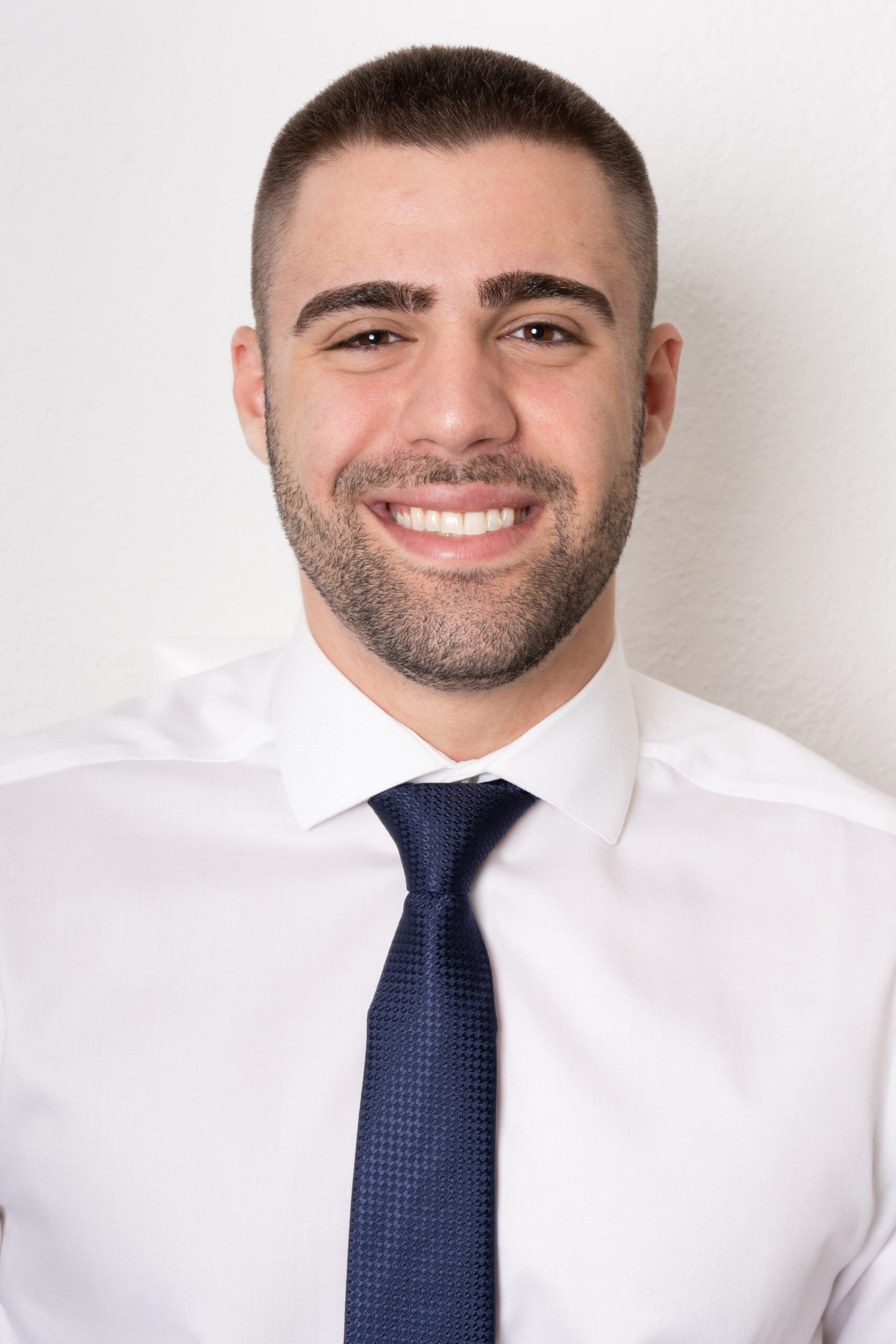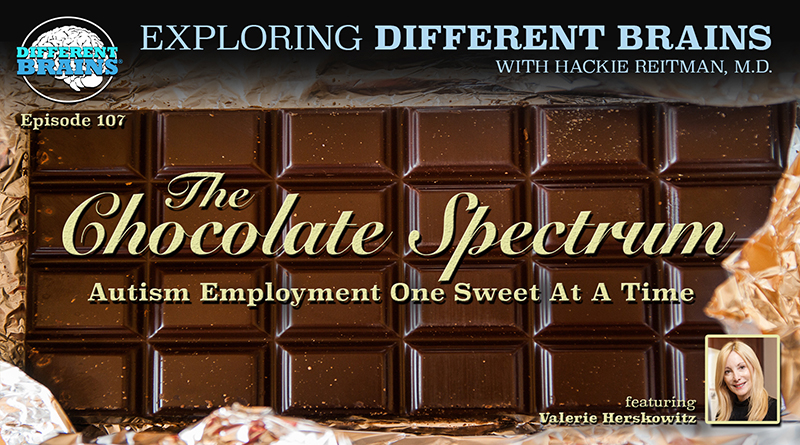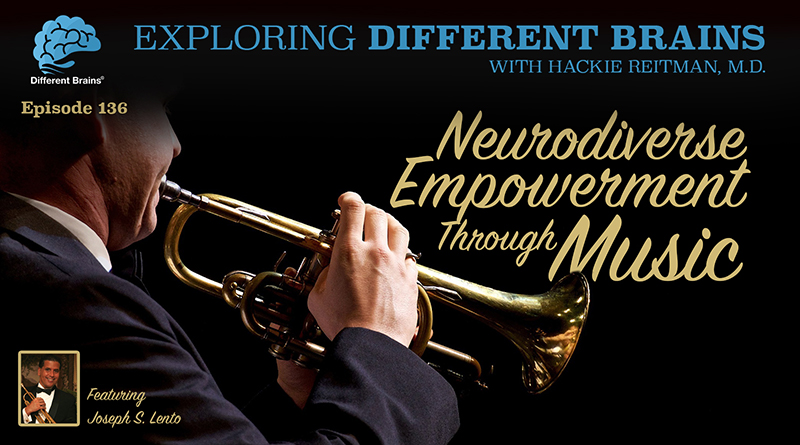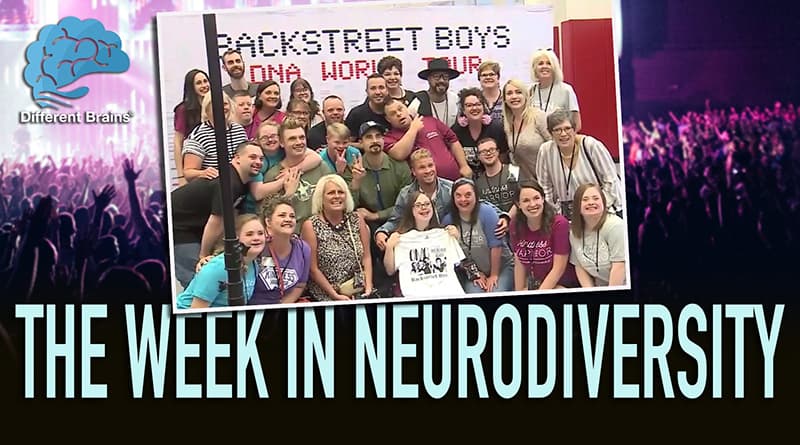ADHD & Interrupting | ADHD Power Tools w/ Ali Idriss & Brooke Schnittman

(8 mins) In this episode of ADHD Power Tools, Ali and Brooke discuss ADHD & interrupting!
Brooke Schnittman, MA, ACC, BCC is a certified coach who works with children, students, teens, adults, and parents with or without ADHD. She has been nominated for multiple awards including “Best In Show Community” and ”Advocating For Another.” She is the creator of What’s Next and ADHDEdCamp.
Ali Idriss is a Different Brains intern and ADHD self-advocate. He aspires to share his journey and help others with the tools that have allowed him to overcome many of the challenges along the way, as he co-hosts ADHD Power Tools and conducts research on college students with ADHD. Ali has completed his bachelor’s in Biological Sciences at Florida Atlantic University and is currently completing his second bachelor’s in Neuroscience and Behavior at Florida Atlantic University. He is also an Emergency Medical Technician and is aspiring to become a physician
For more on Brooke and her work, visit: https://www.coachingwithbrooke.com/
FULL TRANSCRIPT:
ALI IDRISS (AI):
Hello, everybody. Welcome back to ADHD power tools. Today I want to talk to Brooke about interrupting. Don’t interrupt me this episode.
BROOKE SCHNITTMAN (BS):
Fine. [Laughs]
AI:
I want to ask you what are some tools you can give us on just how to, you know, avoid interrupting one another?
BS:
Yeah, so ADHD and interrupting is so common because of our impulsivity is one thing. Another thing is we get anxious if we’re gonna, like lose our train of thought. And we just need to get our thought out before we lose it. So that happens very often. Or, you know, our inattention can drift once someone’s talking, and we might lose what they’re saying. So we might come back at a point that doesn’t make sense, and then interrupt like, what what were you saying? Or can you say like, so we can lose track of a conversation. So another thing is, we just might not be okay with silence. So like anxiety sometimes can cause that. So we feel like we have to fill in the gaps by talking and maybe sometimes even talking over the person. Also, we might interrupt with like off topic statements, we can be very passionate about the conversation, when it aligns to our interest, so we could get really excited about it. And then, like, be uncontrollable with how much we’re talking. And unfortunately, you know, generally in conversation, it’s important to listen and go back and forth. So people can think we’re rude when we talk over them or interrupt them when they have a thought. And listen, ADHD or not, it happens. But with ADHD, those are a lot of the reasons why we do it. So I know you have awesome tools for the ADHD-ers out there, I’m just going to give you some ways if you want to try to tame it, to help the viewers out there with interrupting. So one of the things is, you know, all of us love talking about ourselves. People love talking about themselves. So instead of trying so hard to think about like the next thing that you’re going to say, or getting out what you have to say, take a step back and try to focus on the words that they’re saying, in order to ask them a question. And literally just focus on their words, we can repeat back the last three words that they said in their their statement, and like create a tone to ask them a question. So if you said, oh, you know, I just washed my car, I can say, Oh, you washed your car? And then that will engage you in more conversation. If you don’t know what kind of questions to ask someone. If you’re comfortable with it, you can tell the person that you have ADHD and you’re not trying to be rude and you’re really trying to engage in the conversation. Another thing is to just pause and, and maybe visualize a stop sign when the person’s talking not to try to distract you from what they’re saying. But like pause, visualize a stop sign account five before you respond back to them. So those are just some ways that you might be able to control your interruptions. Thank you for being patient with me without interrupting
AI:
I was tempted to interrupt we right there Brooke, but um, you make a lot of good points. And I think you know, it’s very important for us to know that interrupting sometimes just means we’re excited doesn’t really mean that we’re rude or excited. And we want to say something. And there’s just some idea that we want to blurt out or say sometimes we get distracted doze off and we say, Oh, you wash your car and you just don’t know what to say just you’re like no way really just that kind of fill that void and right and it happens to us. I think it’s important to communicate that right? I think with your friends, your family, whoever you’re talking to, whether it’s over zoom or in person because now or resume interrupting is kind of harder with the sound lag, etc, etc. It gets a little tougher, right? And, but then there’s like, that’s one of the cons of zoom. But another pro is that being able to have a little sticky note on your side and being able to write well one word that reminds you of what you want to say the idea oh, I want to say something read the word down. And that helps. You can just write some down oh, I want to say Slater. But I can throw up write down just like a word. Just something to remind you, right. And this that’s like there’s the pros and cons to everything but in person. You know, you don’t have the sound lag and you can’t really write down so I think you can do something kind of like put a pin on it right? So put your finger on something, and or hold on to something or cross your fingers. So you have the idea kind of just on hold on cue, so you can bring it up later. And count to three, take that deep breath, because I know it’s hard sometimes, right. And if you do give into the interrupting, acknowledge it, I interrupt a lot with my friends and family, I get super excited. It’s that you know, that impulsive nature, I just blurt it out. And I just say, I’m sorry, I’m interrupting you. I’m sorry, I interrupted you. And I also add on, I’m trying to get better at not interrupting. It’s just I always bring that up. And it just, it’s very important to communicate that so they know that you’re not be rude. It’s just, I can’t help it type of thing. Just say you can’t help. So I think it’s very important to be put up put on it, or just acknowledge it. And stay aware of it.
BS:
You make a really good point, the people that you trust, if you say I’m sorry, I’m interrupting. I’m trying to get better. You can even like make a joke, not a joke out of it, but you can make an activity out of it. Okay, can you do me a favor? And tell me how many times you’ve counted that I’ve interrupted you during our conversations? Because I’m actively trying to get better.
AI:
Exactly. I agree with that. I think it’s very important. It’s just, you know, just improving oneself and being just very honest about, um, you know, just how you want to do better and especially with people you trust, like you said, but um, yeah, just acknowledging it. And, you know, or resume have a little sticky note on the side.
BS:
I love that the sticky notes. Yeah, so when I used to teach, I would call it a parking lot. And a lot of my students with ADHD, they wanted to get their hands up and and say what they needed to say, even though it was hard for them to wait their turn. So I would say, Okay, write your notes down on a sticky note, they there were different places in the classroom where they can get a sticky note, and put it on the whiteboard over there. And I’ll come back to these I’ll see the sticky note on the whiteboard. So that’s a great idea.
AI:
Yes, 100%. And it’s very beneficial in those moments, like you know, your interview and things like that. You want to understand those moments in interviews or professional meetings. You want to walk in with that mentality, that deep breath, be a good listener, because being a good listener is so important. I’ve learned that with my sisters, my mom, my girlfriend, you know, they they love it when I can sit down and listen to their to their events and everything. And whenever I interrupt they go crazy on me. So I’ve learned my lesson with them. Just let me sit down and listen and take it all in. Sometimes the best thing to say is nothing right? And just be a good listener and take a deep breath and listen to every single thing because sometimes you want to say something without listening to the whole entire story, right? The whole entire story is important from beginning to end. So yeah,

Ali Idriss is a Different Brains intern and ADHD self-advocate. He aspires to share his journey and help others with the tools that have allowed him to overcome many of the challenges along the way, as he co-hosts ADHD Power Tools and conducts research on college students with ADHD. Ali has completed his bachelor’s in Biological Sciences at Florida Atlantic University and is currently completing his second bachelor’s in Neuroscience and Behavior at Florida Atlantic University. He is also an Emergency Medical Technician and is aspiring to become a physician.




